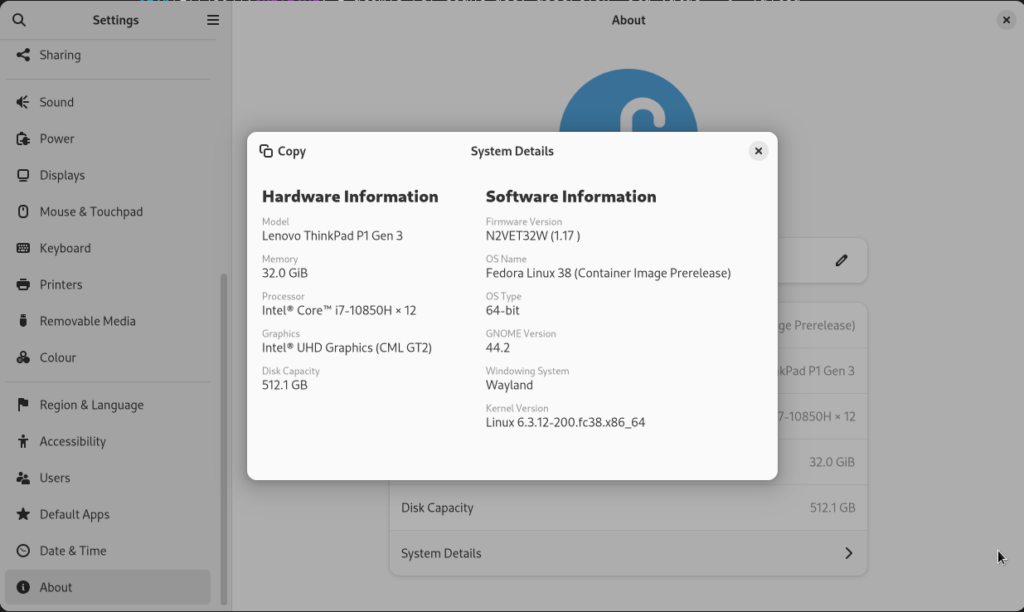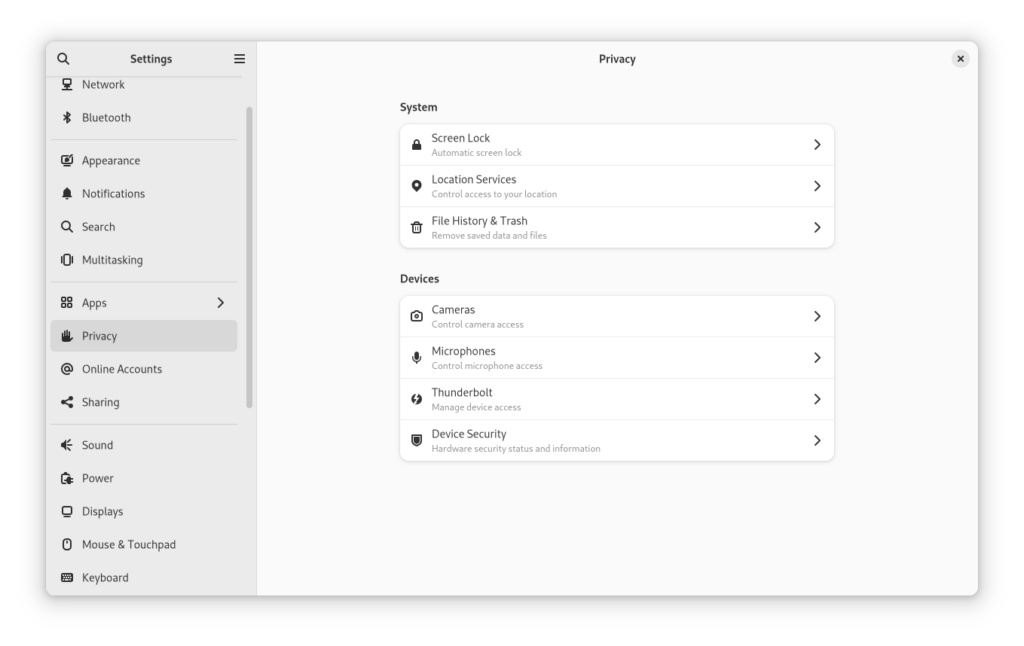There’s no question that GNOME Settings is important to the overall GNOME experience and I feel flattered to share the responsibility of being one of its maintainers. I have been involved with Settings for almost a decade now but only in the last few months I have started to wear the general maintainer hat “officially”.
That’s why I am compelled to update our community on the current state of the project. Settings is also co-maintained by Robert Ancell who has been doing great work with reviews and also helping us improve our code readability/quality.
The last general update from Settings you might have heard of was Georges’ Maintainership of GNOME Settings Discourse post. Some of what’s written there still holds true: Settings is one of the largest modules in GNOME, and being this hub connecting the Shell, the settings daemons, network manager, portals, cups, etc… it needs more maintainers. It needs especially maintainers with domain expertise. We have a handful of active contributors doing great frontend/UI work, but we lack active contributors with expertise in the deep dungeons of networking or color management, for example.
To tackle this issue, one of my goals is to improve the developer experience in GNOME Settings to attract new contributors and to enable drive-by contributors to post changes without struggling much with the process. For that, I kickstarted our Developer documentation. It is in an early stage now and welcoming contributions.
I also have been invested in fixing some of our historical UI consistency problems. A lot has been done in the gnome-44 and gnome-45 cycles to adopt the latest design patterns from the GNOME Human Interface Guidelines with libadwaita and modern GTK. Alice Mikhaylenko and Christopher Davis did an outstanding job with the ports to modern Adwaita navigation widgets. We also gained a new “About” panel that can condense more information that is useful especially for debugging/supporting issues. There’s still work to be done on this front especially with certain views that are currently looking a bit out of place in comparison to modern views.

The new Privacy hub is a new “hub” panel introduced by Marco Melorio in gnome-45 that is our initial step towards reducing the overall number of panels. For GNOME 46 we want to introduce a new “System” hub panel, developed by our Google Summer of Code intern Gotam Gorabh, as well as introduce a new “Network & Internet” panel that is being already worked on by contributor Inam Ul Haq. These are two epics that involve reworking some complicated panels such as the Wifi/Network and User Accounts ones. These are panels that should also see a big frontend rework in the gnome-46 cycle and that I plan to work on myself.
For GNOME 46 we want to introduce a new “System” hub panel, developed by our Google Summer of Code intern Gotam Gorabh, as well as introduce a new “Network & Internet” panel that is being already worked on by contributor Inam Ul Haq. These are two epics that involve reworking some complicated panels such as the Wifi/Network and User Accounts ones. These are panels that should also see a big frontend rework in the gnome-46 cycle and that I plan to work on myself.
Also a big thank you to Allan Day, Jakub Steiner, Tobias Bernard, Sam Hewitt, and other folks doing outstanding design and UX work for Settings.
GNOME 45.0 (stable) will be released in September, shipping plenty of new stuff and bugfixes. It would be extremely helpful if you could test the latest changes and report issues and regressions in our issue tracker. GNOME Settings 45.rc has been released and should be available soon in GNOME OS and unstable/development distro releases such as Fedora Rawhide.
If you want to get involved, feel free to join our Matrix chat channel and ask questions there. I also monitor the “settings” Discourse tag, where you can ask support questions and suggest features.

